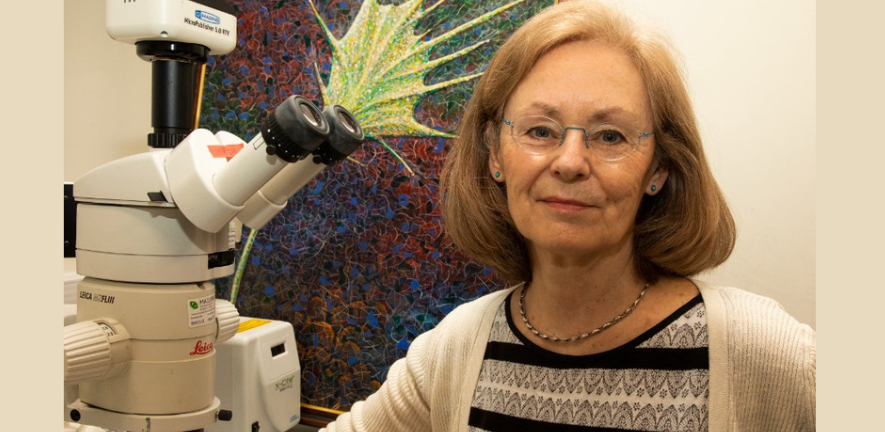
Submitted by Emily Rigby on Thu, 23/03/2023 - 15:17
Our congratulations to PDN Professor of Developmental Neuroscience, Christine Holt, who has been awarded the Brain Prize 2023.
The prize is awarded by the Lundbeck Foundation for critical insights into the molecular mechanisms of brain development and plasticity. It is the world’s largest award for outstanding contributions to neuroscience.
Professor Christine Holt shares the award with two other neuroscientists, Professor Erin Schuman at the Max Planck Institute for Brain Research, and Professor Michael Greenberg at Harvard Medical School.
“Receiving the Brain Prize is an honour beyond my wildest dreams, and I’m absolutely delighted. It’s an incredible recognition of the work that we have been doing over the last forty years,” said Professor Holt
The Brain Prize, which is considered the world’s most significant prize for brain research, includes approximately €1.3 million to be shared by the three recipients. The prize is awarded annually by the Danish Lundbeck Foundation to researchers who have made highly original and influential discoveries in brain research.
“Our work has revealed the surprisingly fast and precise mechanism by which brains ‘wire-up’ during development, and actively maintain their wiring throughout life,” said Professor Holt.
She added: “This provides key insights into the causes of neurodevelopmental and neurodegenerative diseases. Fundamental knowledge of this sort is essential for developing clinical therapies in nerve repair.”
Professor Holt’s work on the developing brain revealed that each neuron sends out a long ‘wire’ - an axon - that navigates a remarkable journey to its own specific target in the brain. When an axon first grows out from a neuron it is tipped with a specialised growth cone, which finds its way using guidance cues - much like reading signposts along a road.
Holt found that an important aspect of this navigation system is the autonomy of growth cones in reading and responding to guidance cues. The growth cone contains all the machinery necessary to make the new proteins the axons need to steer along the right pathway. She also found that proteins are continuously made in our axons every day – an important process enabling the developing and adult brain to be shaped by experience.
Other laboratories around the world are now looking at how mutations in these proteins affect the growth and survival of axons. The hope is that new therapies can be developed for treating neurodevelopmental and neurodegenerative diseases.
“It is such a great honour to share the prize with Erin Schuman and Mike Greenberg. Their beautiful work has been an inspiration to me over the years. It’s been an exciting journey of discovery that may eventually lead to advances in therapies for neurodegenerative disease and neural repair. Thank you most sincerely to the Lundbeck Foundation,’’ said Holt.
Professor Richard Morris, Chair of The Brain Prize Selection Committee added: “The Brain Prize winners of 2023, Michael Greenberg, Christine Holt, and Erin Schuman have revealed the fundamental principles of how this enigmatic feature of brain function is mediated at the molecular level. Together, they have made ground-breaking discoveries by showing how the synthesis of new proteins is triggered in different neuronal compartments, thereby guiding brain development and plasticity in ways that impact our behavior for a lifetime.’’
Brain Prize recipients are presented with their award by His Royal Highness, The Crown Prince of Denmark, at a ceremony in the Danish capital, Copenhagen. Watch the moment Professor Holt discovered she had been awarded the prize, and learn more about the prize on the website The Brain Prize | Lundbeckfonden
Adapted from a University of Cambridge article: Cambridge scientist Professor Christine Holt wins world’s top neuroscience award | University of Cambridge

